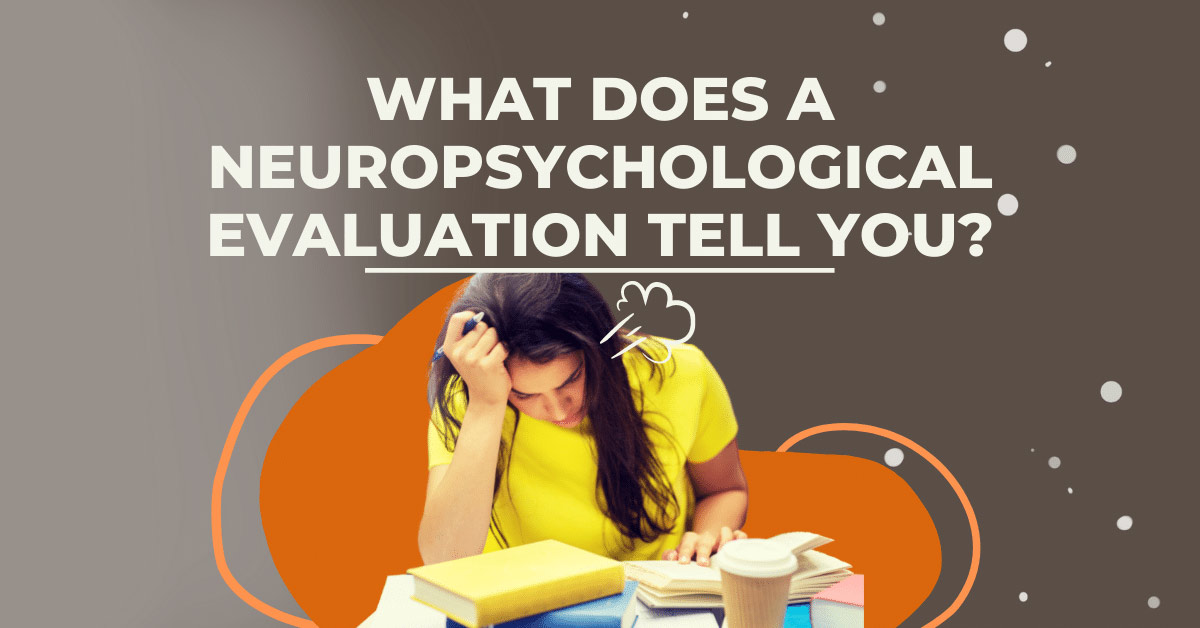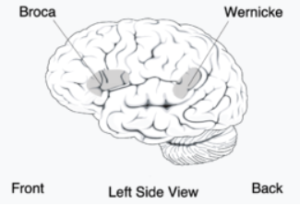
16 Aug Neuropsychological Evaluation
What Does a Neuropsychological Evaluation Tell You?
A neuropsychological evaluation is a comprehensive test performed by a licensed professional that provides insights into brain functioning. It measures skills and abilities like reading, writing, memory, attention, and processing skills.
This type of evaluation is crucial because it can aid in the diagnosis, help establish baselines, and assist in treatment options when someone is struggling with mental processes like thinking or learning.
Generally, an individual needs to get a neuropsychological assessment if they show a significant differences or sudden changes in thinking, memory, or personality. The test can help determine cognitive performance when someone is struggling with areas of development.
This happens when they exhibit learning difficulties, have a genetic disease, or have experienced traumatic brain injury. A thorough neuropsychological evaluation directs us towards problematic areas of cognition and highlights mental strengths.
What is a Neuropsychological Evaluation?
A neuropsychological evaluation is a systematic assessment of an individual’s cognitive functioning. Performed by a licensed professional, this test can highlight the specific cognitive skills or abilities that a person is struggling with.
Practitioners can ask for these tests to ascertain areas of weakness and develop strategies to improve mental performance.
According to Dr. Ami Norris-Brilliant, PsyD (assistant professor of psychiatry), a neuropsychological evaluation assesses the following areas:
- Attention and concentration
- Full scale IQ
- Speech and language
- Phonological and audiological functioning
- Verbal and visual memory
- Visual motor integration
- Executive functioning skills (such as planning, attention, and inhibition)
- Fine motor functioning
- Intellectual ability
- Academic skills
- Social perception
- Audiological processing
- Emotional functioning
- Interpersonal functioning
⏩Need A Neuropsychology Referral?⏪
A neuropsychological evaluation differs from other psychological evaluations in that it gauges the functioning of the patient’s central nervous system to help the clinician discover the specific cognitive processes that may be impaired in each patient. (Dr. Ami Norris-Brilliant, PsyD gave us the permission to add her content.)
It is a comprehensive assessment that examines thinking skills and behaviors. It can outline strengths and weaknesses, helping practitioners focus on areas of concern. Moreover, it also helps keep track of changes in overall cognitive performance as the test can be prescribed on different dates and compared with each other.
A typical neuropsychological evaluation may include a:
- Memory Test
- Cognition Test
- Language test
- Motor Test
How Does Neuropsychological Evaluation Help Adults?
Adults may be required to go through a neuropsychological evaluation if there seems to be something amiss in their brain’s functioning.
The concept of lateralization is central to the effectiveness with which practitioners can utilize this test. Lateralization refers to the specialization of brain parts that consistently cater to certain mental processes.
For instance, doctors have associated speech with Broca’s area, which is the motor speech center of the brain (Moini, 2020). So, examining Broca’s area might be a good idea if someone presents difficulty in speech.
Since specific cognitive faculties are associated with different areas of the brain, a neuropsychological evaluation can give ample information to the practitioner. Moreover, it can also guide future evaluations, making it easier for the person to get treated.
An expert who can understand and interpret the results of this test can isolate areas of the brain that may be suffering. This process makes the proper diagnosis of diseases like Alzheimer’s, depression, anxiety, and even traumatic brain injury possible.
The more factual information a medical practitioner possesses, the better equipped they are to make good decisions for the patient. In this right, a neuropsychological evaluation is a powerful tool that overwhelmingly benefits adults.
How Does Neuropsychological Evaluation Help Children?
A child must meet certain developmental milestones to become a competent learner. When they are struggling with meeting their goals or present with issues related to memory and thinking, they might need to take a neuropsychological evaluation.
When a child takes a neuropsychological evaluation, they can assess them for Attention-Deficit Hyperactivity disorder or any learning difficulties/disabilities they face.
However, it is pertinent to note that each evaluation does not end in a diagnosis. A neuropsychological assessment highlights the strengths and weaknesses of learning and attention skills in school-going children. The findings of the comprehensive test can specify what sort of teaching and support can improve learning outcomes for kids.
Why Would Someone Consider Getting a Neuropsychological Evaluation?
Usually, an individual might consider having a neuropsychological evaluation if they have some cognitive difficulties. In other words, they might be unable to think, comprehend or remember things correctly.
Additionally, learning may not be occurring as it usually does, which can cause concern for the individual.
Generally, the concerns that may lead to needing a neuropsychological evaluation are:
- Learning disorders and learning differences
- Inattentiveness, hyperactivity, impulsivity
- Executive-functioning weaknesses, such as difficulty planning and organizing
- Processing-speed deficits
- Language disorders or delays
- Visual-spatial, visual-motor, and fine motor deficits
- Intellectual disability
- Autism spectrum disorder
- Anxiety
- Depressed mood
- Behavior difficulties in the home or at school
- Deficits in learning and functioning secondary to neurological and birth conditions (e.g., seizure disorders, epilepsy, traumatic brain injury, brain tumors, acquired or congenital hydrocephalus, premature birth)
- Giftedness combined with difficulties in learning or other areas
Summary
A neuropsychological evaluation can tell individuals how they measure different cognitive abilities and skills. These skills can range from language to motor development.
The test enables practitioners to diagnose issues like learning disabilities, genetic illnesses, or even traumatic brain injury. However, it does not always have to be a tool of diagnosis/ Neuropsychological can also help determine the best way a child might learn after assessing their strengths or weaknesses.
Check out our other blogs:
➡ How are Executive Functioning and Neuropsychology Related?
➡ Why Get a Neuropsychological Evaluation?
➡ What Is A Neuropsychological Evaluation And Its Purpose?
➡ Pediatric Neuropsychological Assessment FAQs
➡ A Parent’s Guide To Pediatric Neuropsychological Assessment
Want to learn more about what a neuropsychological evaluation tells you? Chat with Themba Tutors Today!
We will connect you to some of the best neuropsychologists in the New York City metro area!
Call: (917) 382-8641, Text: (833) 565-2370
Email: [email protected]
(We respond to email right away!)
References
Moini, J., & Piran, P. (2020). Chapter 6 – Cerebral cortex. Στο J. Moini & P. Piran (Επιμ.), Functional and Clinical Neuroanatomy (σσ. 177–240). doi:10.1016/B978-0-12-817424-1.00006-9
Craig Selinger
Latest posts by Craig Selinger (see all)
- Psychotherapy and Support Services at Cope With School NYC - April 12, 2024
- NYC Parents of Teens Support Group - April 8, 2024
- Here I Am, I Am Me: An Illustrated Guide to Mental Health - April 4, 2024





No Comments